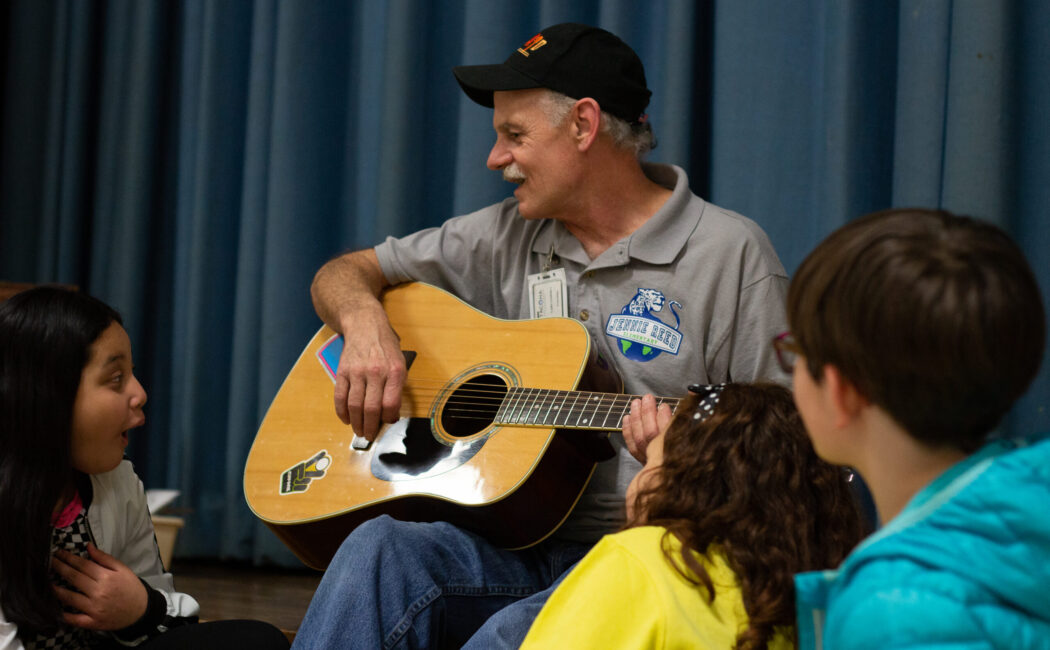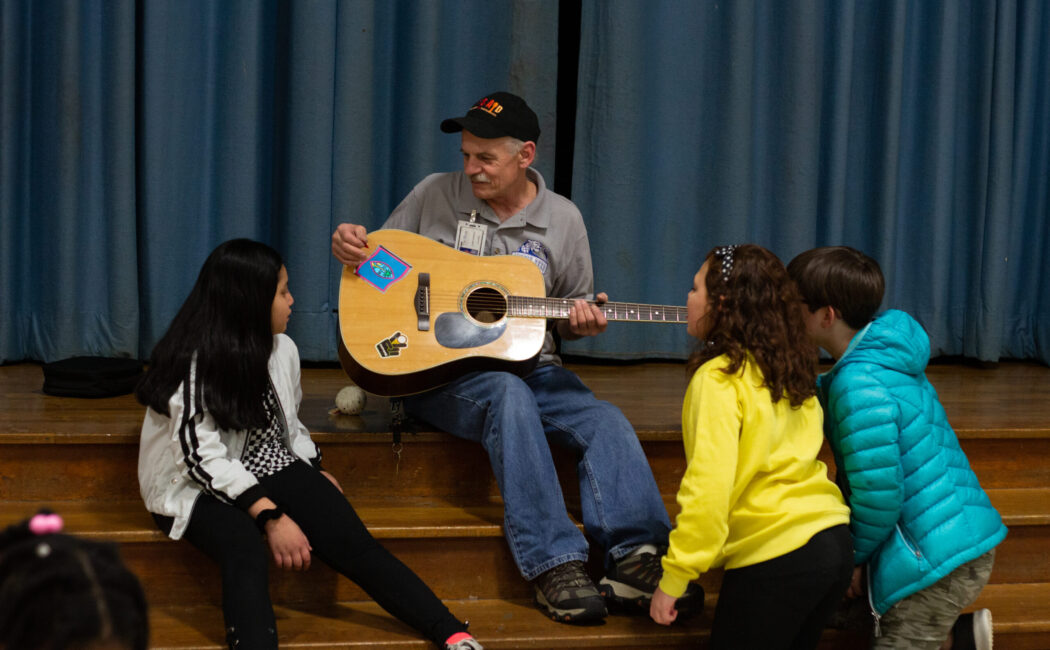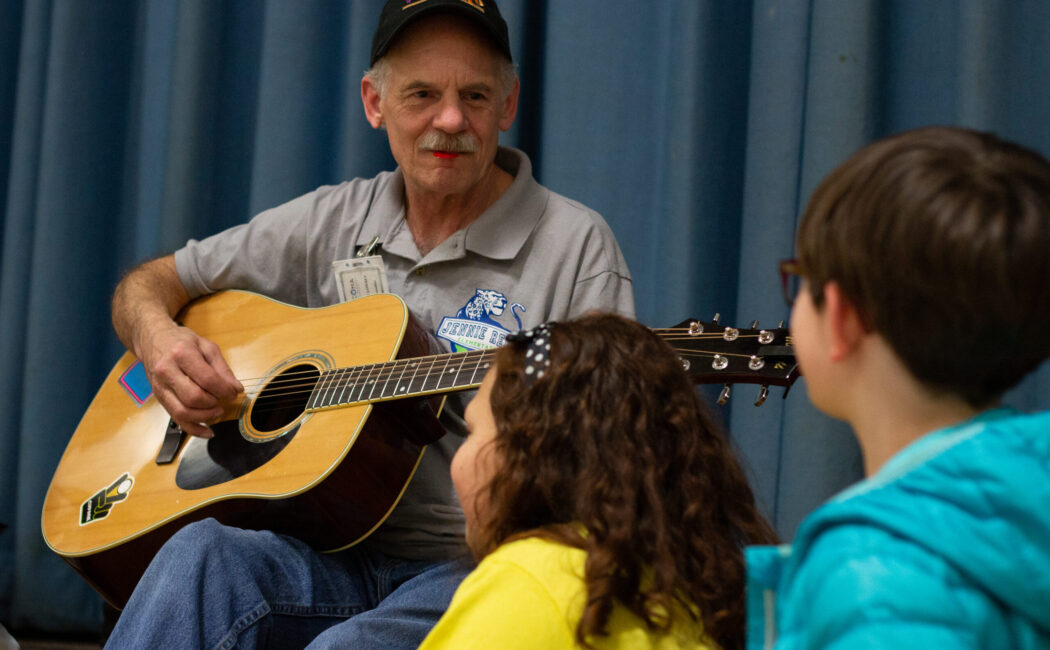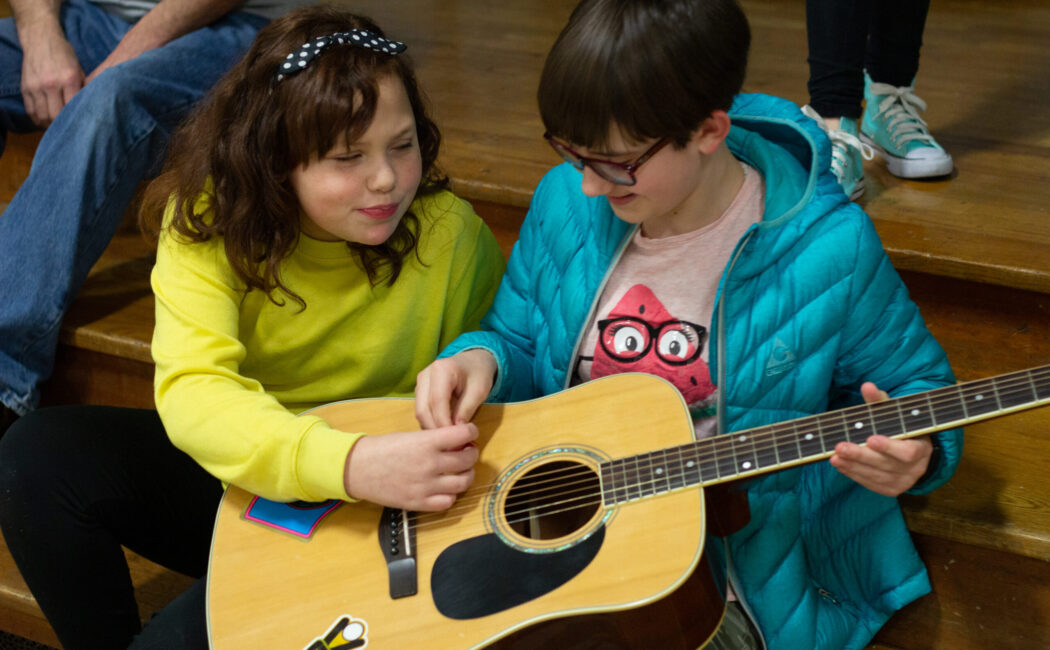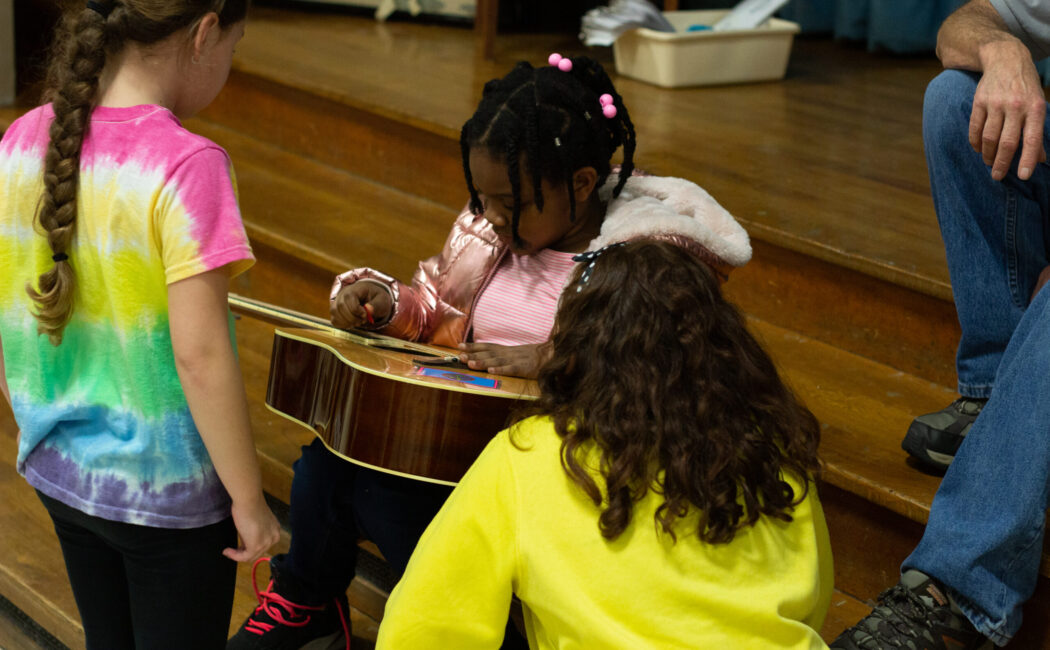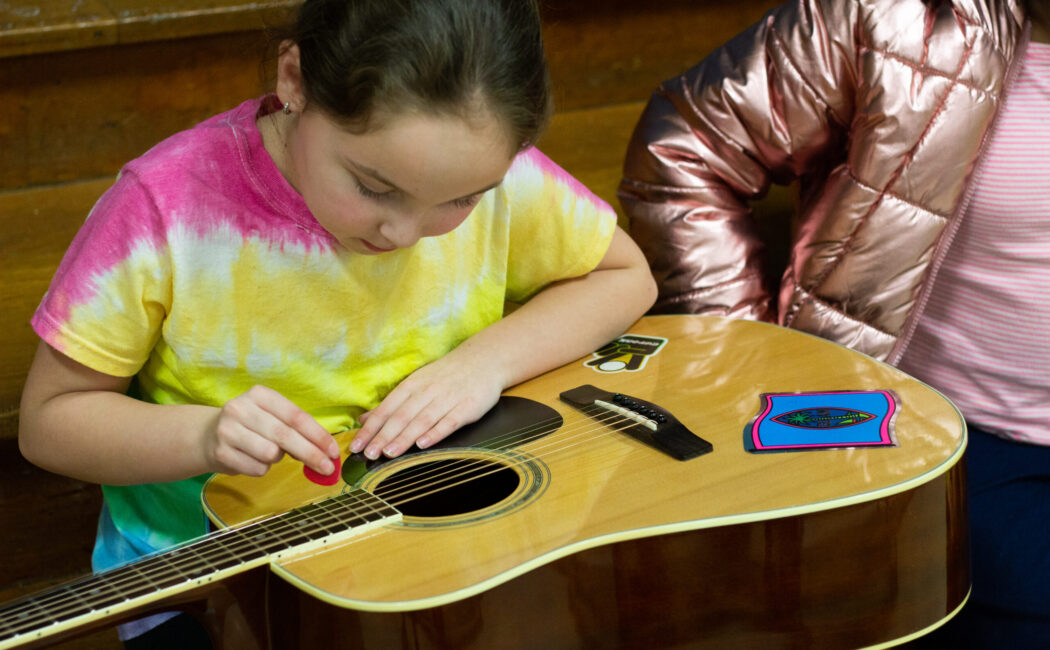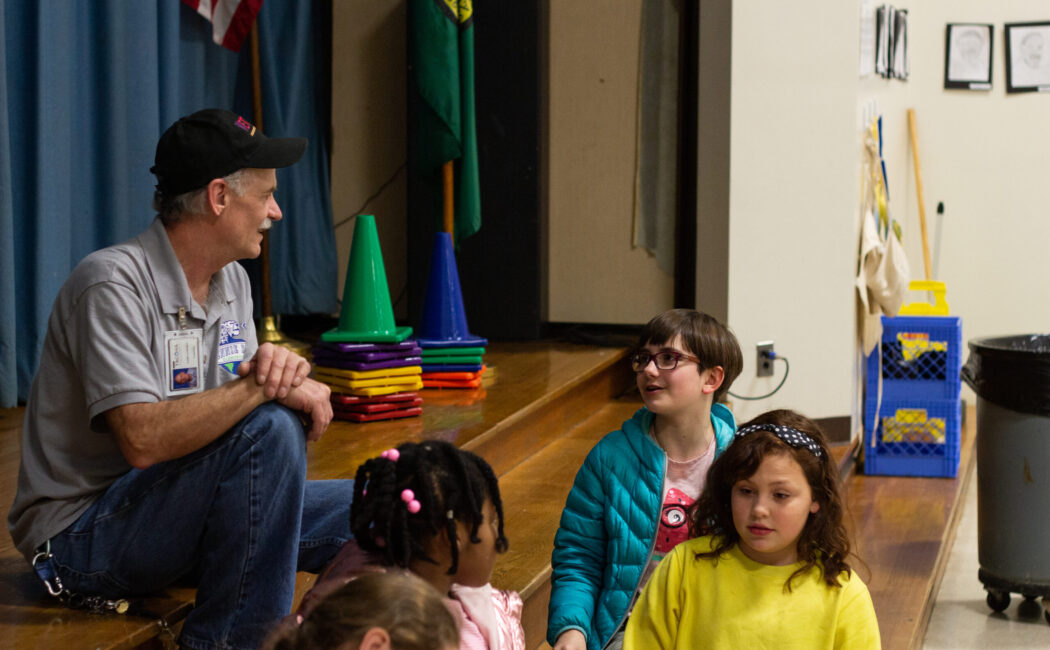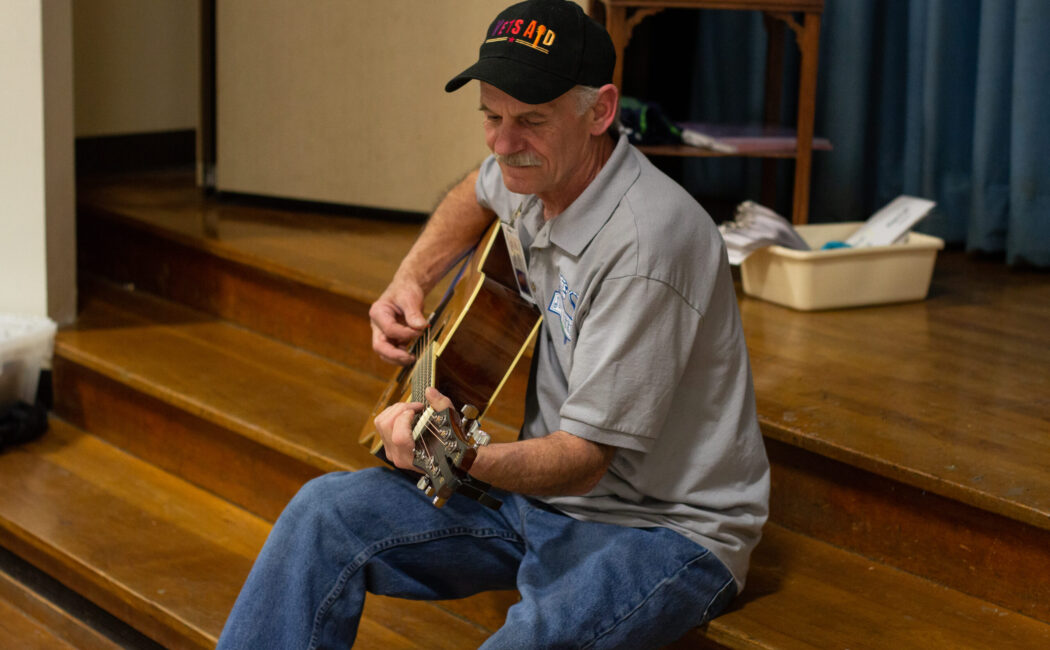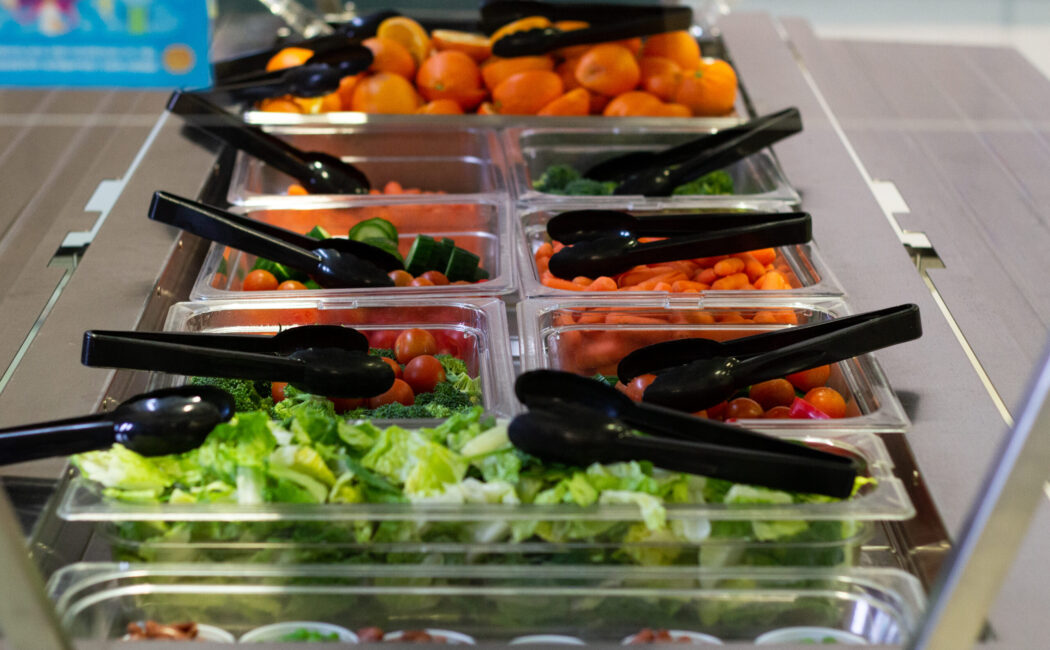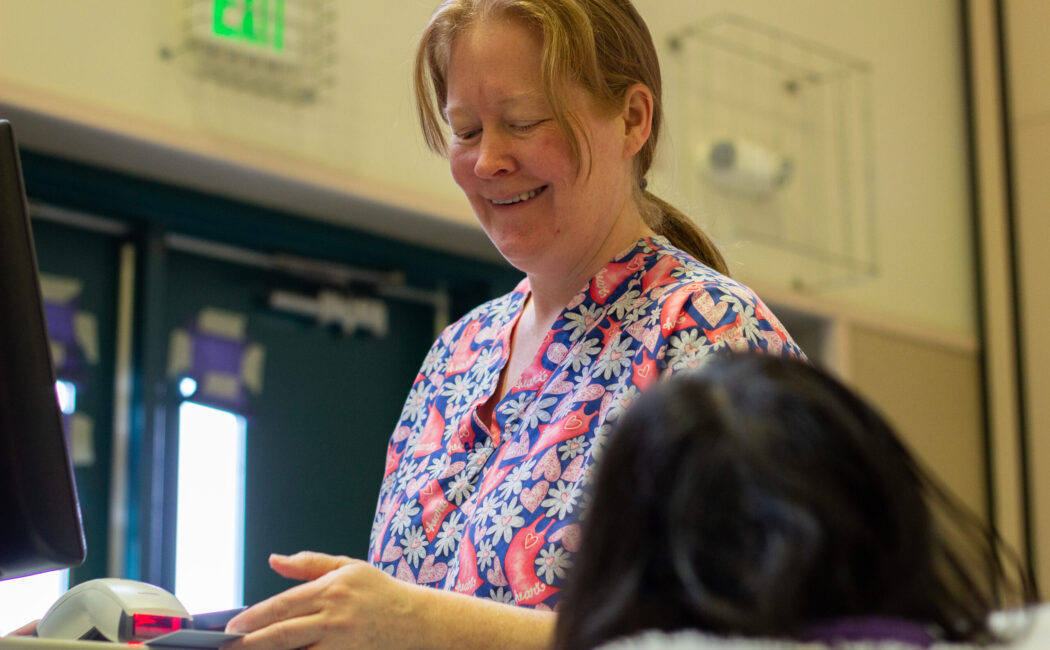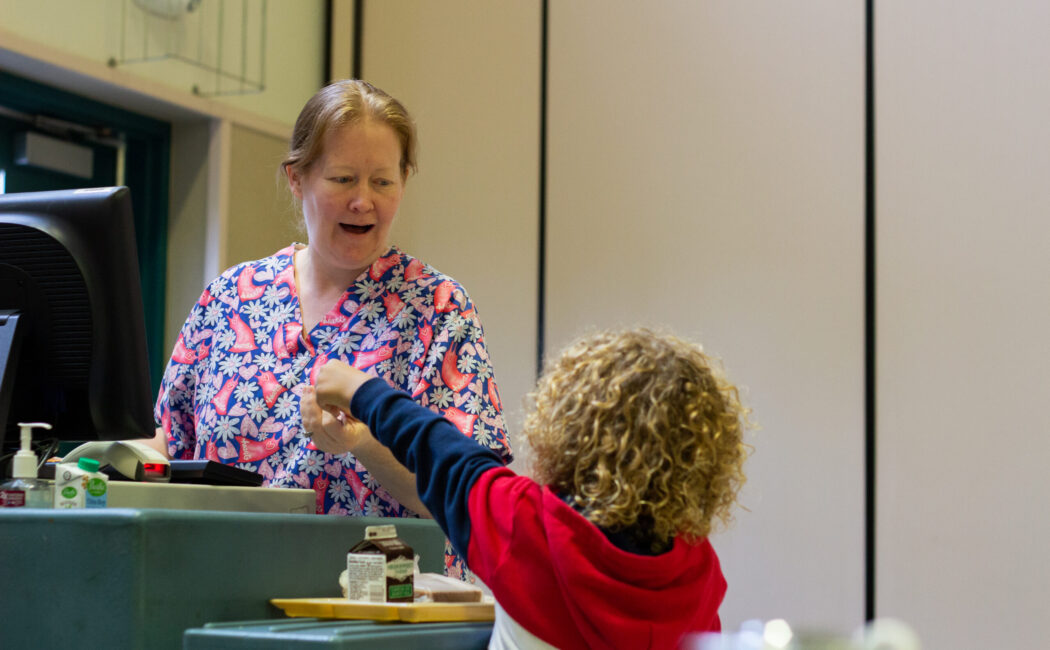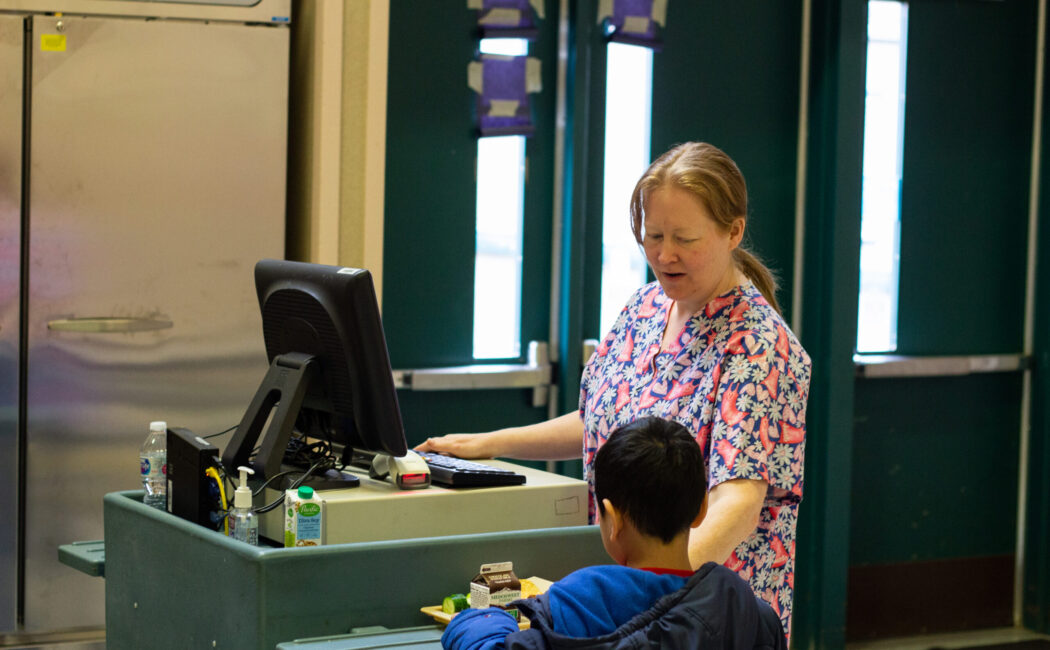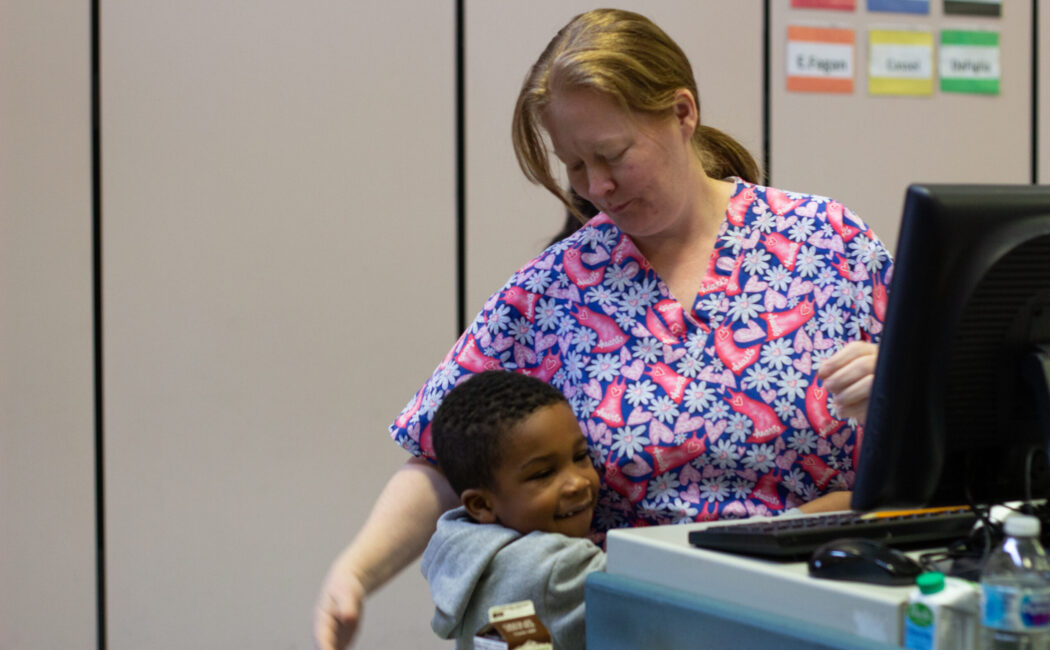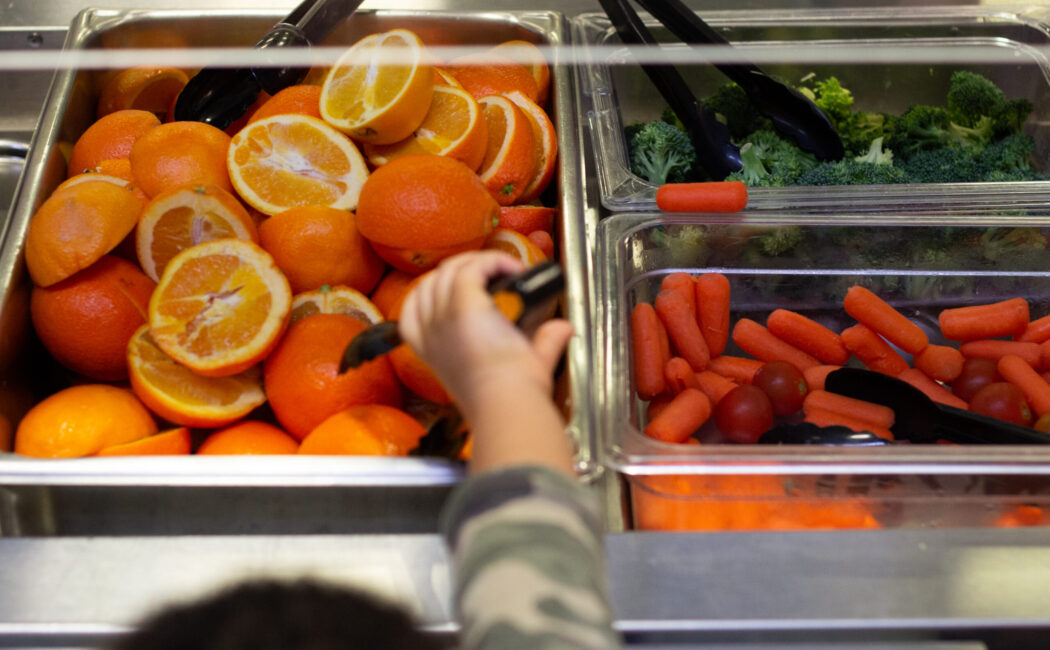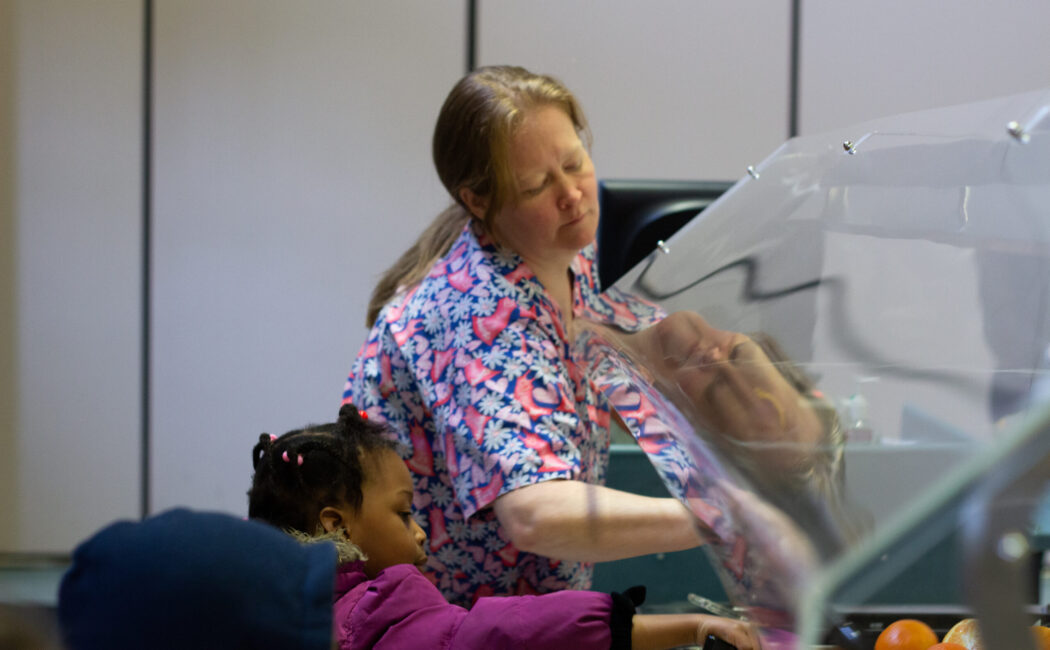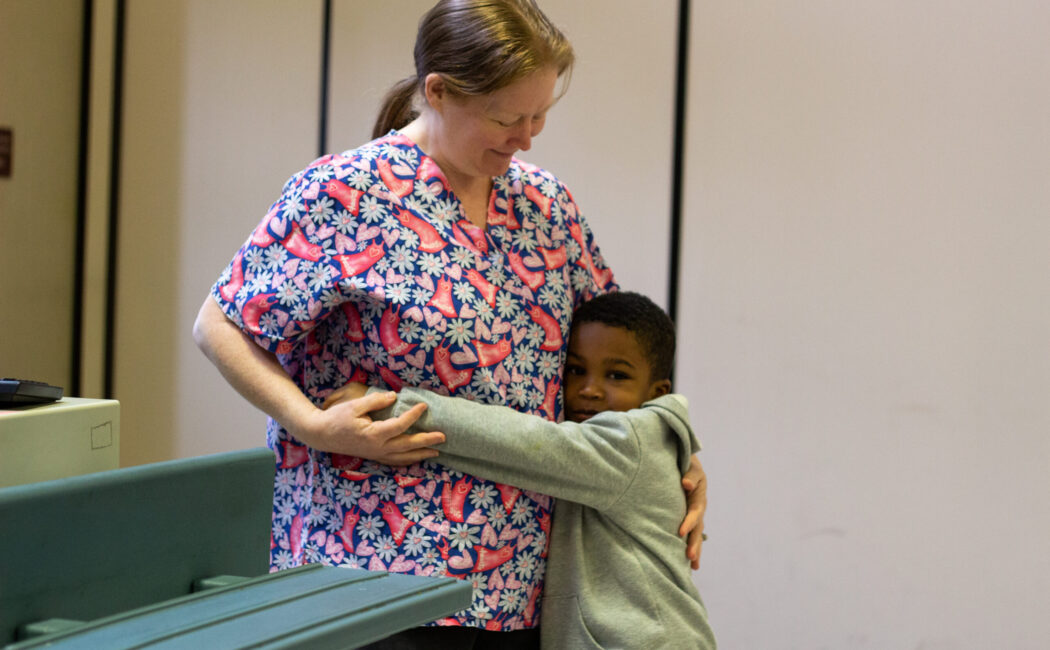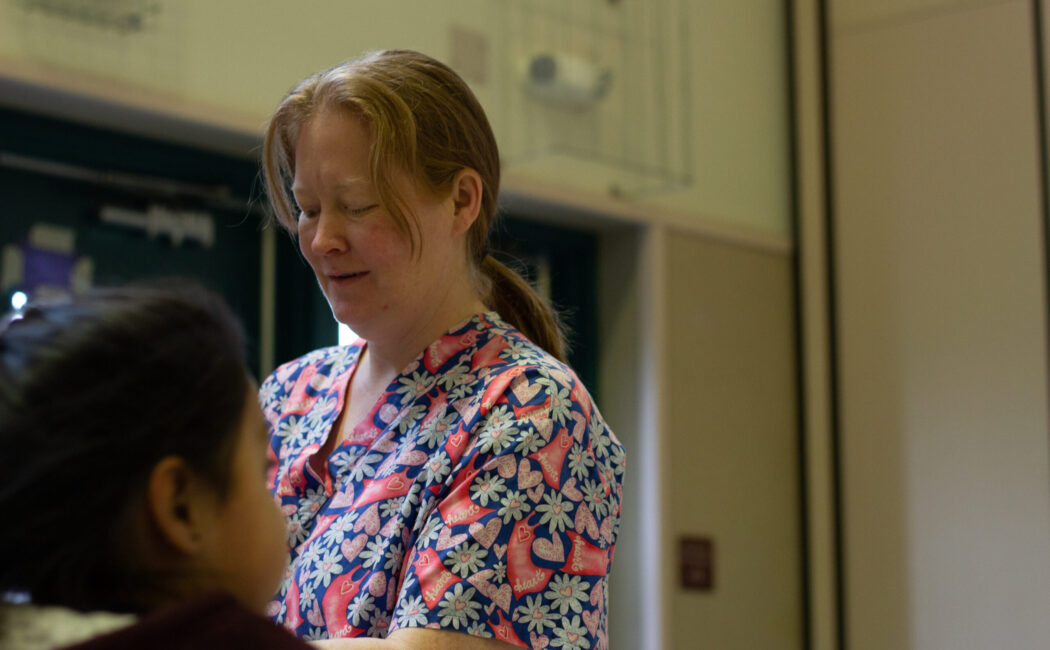
Community
13
2020
Every Adult Can Build Youth Resilience and Help Students Thrive
During the end-of-school hustle and bustle on a recent afternoon at Tacoma’s Reed Elementary School, a group of students gathered around Gary Lowery. He sat on the steps of a stage in the cafeteria strumming his guitar. After playing a couple tunes of his own, Gary passed the guitar around the circle and let each of the students try playing it. “They just love it,” Gary said. “Some of them really get into it and start singing away.”
“…the way they show up and interact with kids can set a tone that creates a sense of belonging, safety and confidence that our students need to thrive.”
Gary clearly has a special rapport with the students, but he isn’t a classroom teacher or an Expanded Learning provider. Gary is the school’s afternoon custodian. He says the guitar playing isn’t really part of his job description, but he’s noticed that it helps create a sense of calm, especially in that transition time for kids who participate in the afterschool programs. “I saw one student who was having a rough day and I thought if I played, maybe it would help him chill. Next thing I know, I hand him the guitar and he holds it on his lap and starts strumming. It really did calm him down. Ever since then, all he wanted to do was play guitar.”
Gary is an example of how school employees who work in a capacity often referred to as “support staff” can also play an important role in helping students learn and grow. “Whether it’s a bus driver, front office staff, kitchen staff, or recess supervisor, the way they show up and interact with kids can set a tone that creates that sense of belonging, safety, and confidence that our students need to thrive,” said Fahren Johnson, GTCF Whole Child Senior Program Officer. “Our goal with the Whole Child partnership is to create a seamless current at each school, where every adult on campus is connected and working together to support our kids throughout the day in and out of the classroom.”
“These relationships buffer children from developmental disruption and help them develop ‘resilience’ or the set of skills needed to respond to adversity and thrive.”
Kathy Kiser, a Child Nutrition Cashier at Sheridan Elementary, agrees that even the small interactions with students can make a big difference. Kathy only sees students for a few minutes each day, but she makes a point to greet them by name as they come through the lunch line, often asking them to “pay” for their food with a smile. “They’ll hand me their card and I’ll say, ‘Where’s your smile?’ or ‘Happy Wednesday, you’re halfway there!’. Just something to cheer them up; especially when I can tell they’re having a bad day. I think that’s something that can carry over into their next class or hopefully the rest of their day.”
“I just want them to see that there are adults they can trust and come to for help when they need it.”
Research shows that the connections Kathy and Gary have fostered with students can actually make a life-long impact. A 2015 report from the National Scientific Council on the Developing Child explains that children who do well despite serious hardship have had at least one stable relationship with a supportive adult. “These relationships buffer children from developmental disruption and help them develop ‘resilience’ or the set of skills needed to respond to adversity and thrive.”
Back at Reed, Gary sees the importance of these relationships he’s built with students as well. “I see what kids have to go through now compared to when I was a kid. It’s scary. I just want them to see that there are adults they can trust and come to for help when they need it.”

